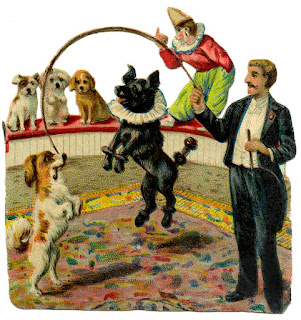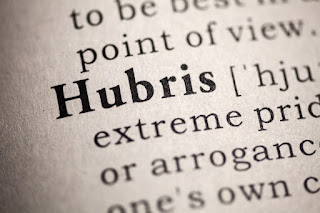Today I discovered a lost world. That of German banks eighteen years ago. Things have changed and not necessarily for the better. Take a time-trip back to my Extrawurst from February 2006 and discover why Kredit was one of the dirtiest words in the German language. The Germans have plenty of new dirty words these days, mostly stolen from us or our US friends, which is not encouraging. Back then, I wrote about the big banks with their impressive Frankfurt skyscrapers, and their intimidating but competent advisors. The reassuring air of stuffiness and formality, coupled with the persistence of the personal touch, the reluctance to go online and digital with it all.
---------------------------------------------------------
The time has come, today, to tackle one of the dirtiest words in the German language. It’s not the word Scheiße or Schweinhund but a rather inoffensive looking and sounding little six letter word: Kredit. Along with looking at the reasons why this is a word so loaded with negative meaning, I’ll have a go at trying to get behind some general German views on all things money and finance.
I used to live in Frankfurt where one of the defining features or iconic elements is the skyline, which is dominated by Frankfurt (and Germany’s) leading banks, all vying with each other to see who can build the tallest skyscraper. Since the late 1990s, the Deutsche Bank, Commerzbank and rivals have also been joined by the European Central Bank, the spawning ground (if you like) of the Euro. It is actually quite difficult to get away from money in Frankfurt: on every corner is a bank or at least a Geldautomat and even if you do escape to one of the Olde Worlde Apfelwein pubs in Alt Sachsenhausen, one quick glance skywards will bring you back to the world of money, even if your neighbours at the table aren’t bankers (which would be unusual.).
The German banks, particularly the “big boys” such as the Deutsche Bank (www.deutsche-bank.de ), Dresdner Bank (www.dresdner-bank.de ) and Commerzbank (www.commerzbank.de) tend to be, on the surface, somewhat intimidating and less immediately approachable than their UK equivalents. One still gets the feeling, which is reflected in their web presence to some extent, that there will be no chummy banter here and one should really put on a suit when going to the bank, even if it’s just to make a simple money transfer. Although the big banks have moved with the times to some extent, there still seems to be some feeling of stuffiness and formality. However, one can sense a pattern here that is very similar to that of relationships in general in Germany: these tend to develop slowly, step-by-step, until the no-turning-back-friend-for-life stage of “du-sing” is attained.
Although one doesn’t get all the chummy, jokey, for-God’s sake we’re-not-boring-and-we’re gonna-prove-it attitude of UK banks in Germany, we also don’t get the call centres and never speaking to the same person twice that we are beset with in the UK (I know, I still have a UK bank account.) In Germany, everyone has an advisor assigned to them at their own branch, with a direct phone line, regardless of whether you have a couple of thousand Euros or a few billion. These advisors really do get to know you and your preferences when it comes to accessibility of your money, what kind of investments suit you and what your future plans are, which is particularly important in a country where everyone is rapidly having to seek alternatives to the state for health insurance, pensions and the rest.
While the big three banks dominate the skyline of Frankfurt, most Germans actually have their account at the local Sparkasse or savings bank (www.sparkasse.de ), Volksbank or Co-op bank (www.volksbank.de ) or the Postbank (www.postbank.de ). While these banks may be a little less intimidating than the big three, they are never-the-less places of seriousness and formality. In fact, when Germans are asked about which qualities or values are important in choosing a bank, trustworthiness, serious and solid reputation and flexible to my personal needs are the top three criteria, with modernity and friendliness seen as “nice to have” but not critical.
Although the banks do seem to have moved with the times, the use of services such as on-line banking is still relatively low in Germany and the idea of physically visiting the bank to make transactions still a very popular one. Even cash dispensers seemed to take longer to catch on here and one feels that there is a huge underlying mistrust of finance and banking conducted by anything other than real people.
This brings me on, of course, to that dirty word: Kredit. While things have improved over the last ten years, when I first came to Germany, I was astounded by the unacceptability of plastic generally. To buy a major item, one either had to pay in cash or write out a number of cheques, each of which had a maximum value of DM 400 in those days. Credit cards were scorned and frowned upon almost as much as if one came up with a begging bowl. Again, the distrust seems to stem from a very direct relationship that Germans seem to have about money: carrying large wads of cash around or openly discussing with strangers the cost of your house or car are not seen in any way as vulgar displays but rather as an honest, straightforward approach.
Credit cards are still barely accepted today. Visitors to Germany are often surprised and embarrassed that restaurants turn their noses up even at Mastercard and VISA. And the Mastercard and VISA cards here tend to be cards that are paid off within 4-8 weeks, so not real credit cards at all! Mastercard did themselves no favours with the German public by making the World Cup tickets draw only accessible to Mastercard holders. However, a step in the right direction, to win the Germans’ trust in plastic money has been made in the last few years with the introduction of the “ec card”, a form of direct debit card that doubles as a cash card that is issued by most banks. But to think that this has only been in general use for the last 5 years or so is astounding.
Part of the disgust for credit cards may well come from the fact that they are seen as coming from profligate and decadent lands, such as the US and UK. Perhaps if one of the big German banks could introduce a very serious, trustworthy and solid credit card (maybe made a bit thicker than “your flexible friend”) that signaled control and financial acumen instead of profligacy when you took it out of your wallet, they could be onto a real money-spinner.
---------------------------------------------------------
Things probably started to go sour in that fateful year 2008. The Dresdner Bank was acquired by the Commerzbank in May 2009.
What do we have now? Blowing up cash machines seems to be a national hobby. Bank branches are disappearing faster than tigers. I’m reduced to asking for cashback at the supermarket more often than not. While Covid speeded up the move to a cashless society, there are plenty of flies in the ointment - local independent shops and restaurants who don’t take cards - and who can blame them?
I’m still hanging on in there with the Commerzbank in the hope that things will get better, but I’ve been let down by them far too often, with the resulting loss of trust. Frying pan and fire come to mind.
Still, things aren’t quite as dire as they are in the UK. But that’s another story.













